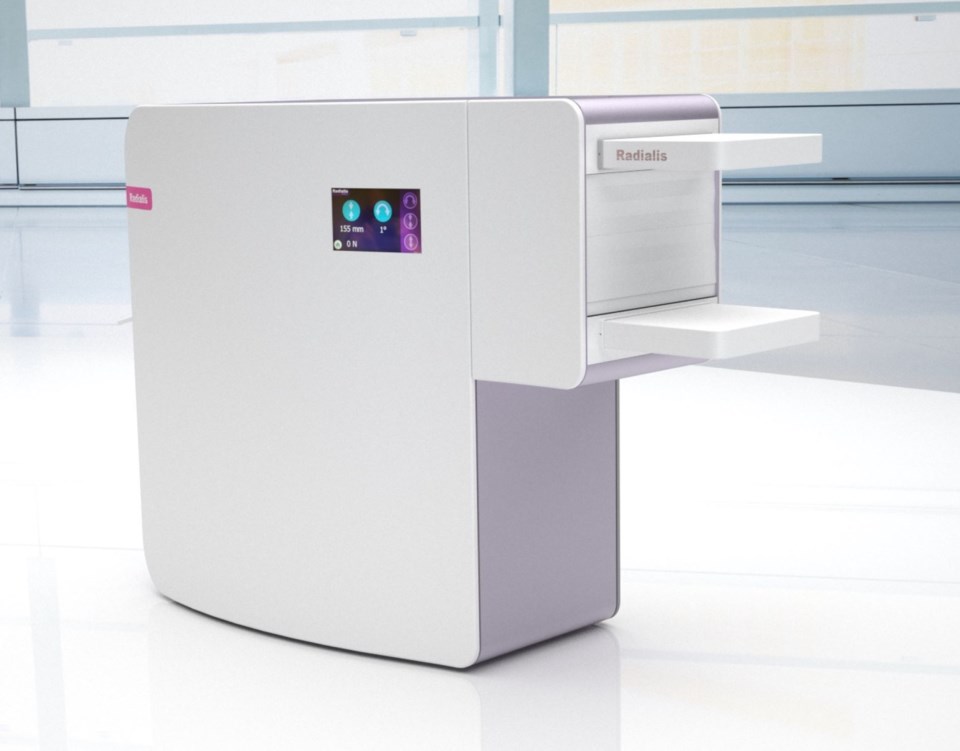THUNDER BAY — A new diagnostic imaging device based on technology developed in Thunder Bay could hit the international market in the near future.
Radialis Medical, a joint venture of the Thunder Bay Regional Health Research Institute and Lakehead University, is seeking regulatory approval to distribute a PET (positron emission tomography) camera that targets individual organs.
"Compared to whole-body PET scanners, an organ-targeted PET camera positions detectors in close proximity to the organ of interest for a higher quality image of a smaller field of view," said Michael Waterston, the CEO of Radialis Medical.
Radialis is now applying to the U.S. Food and Drug Administration for clearance to sell its compact PET system.
It says the device would be an ideal addition to clinics with whole-body PET systems due to its improved sensitivity, resolution, and flexibility that enables precision imaging of multiple organs with as little as 1/10th of the normal radiotracer dose.
PET scans require radioactive tracers to detect abnormalities inside the body.
The system developed by Radialis uses patented light-sharing technology to localize radiation emission.
Its underlying technology was developed in Dr. Alla Reznik's research laboratory at Lakehead University and the TB Regional Research Institute.
Reznik said emerging radiotracers being developed for PET imaging "allow specific disease processes to be visualized and facilitate precision medicine."
She said the Radialis camera is the first organ-targeted PET system focused on low-dose imaging of multiple diseases.
The device is currently under study at the University Health Network-Prince Margaret Cancer Centre in Toronto for imaging suspicious breast abnormalities.
Dr. Andrew Dean, vice-president or research and innovation at Lakehead, called the application to the FDA "a great milestone as Radialis moves to develop their novel cancer detection imaging equipment."
Dean added that the creation of manufacturing facilities in Thunder Bay to produce the device is equally exciting.
Radialis already makes its research systems here.
Waterston told TBNewswatch it plans to scale up production as regulatory approvals are received.
The hiring of additional staff, he said, will be based on the volume of orders that are received.
– TBNewswatch




